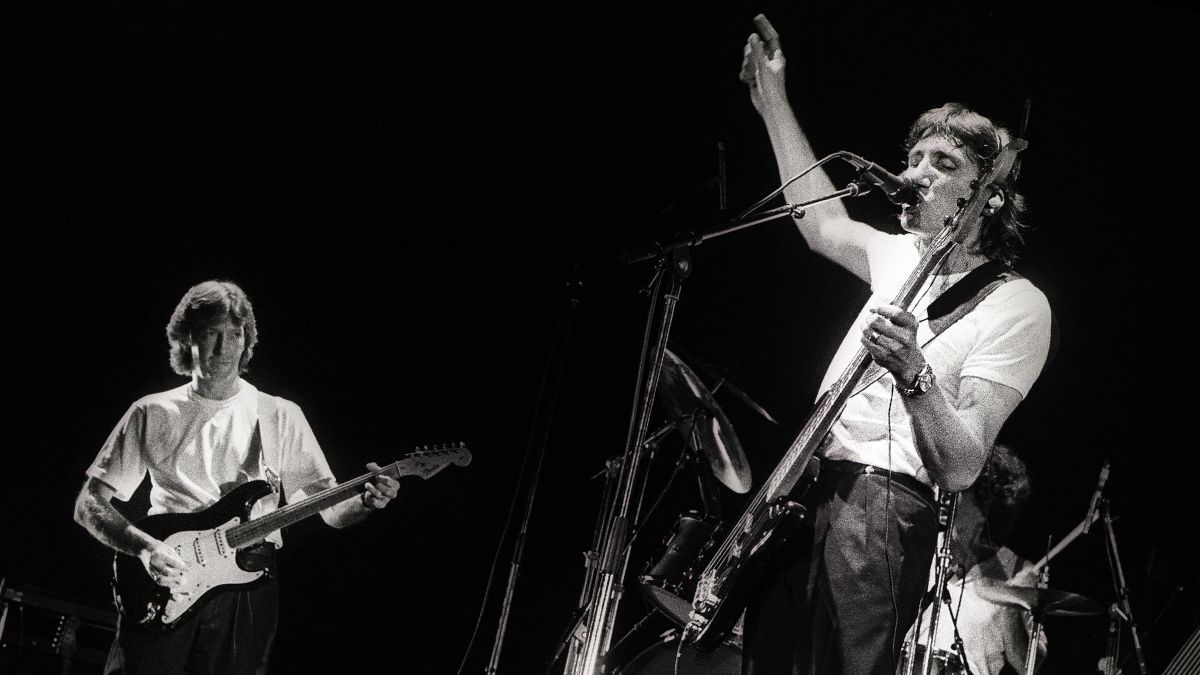“I love using toy guitars that you have to wrestle with. It adds to the performance – you’re pulling from the instrument”: Dean DeLeo on why his favorite STP songs are the ones he didn’t write, and barging into Allan Holdsworth’s dressing room
The Stone Temple Pilots guitar icon explains how he stumbles upon songs, why nothing’s quite like a Telecaster, and how his latest spellbinding collaboration, One More Satellite, came to be
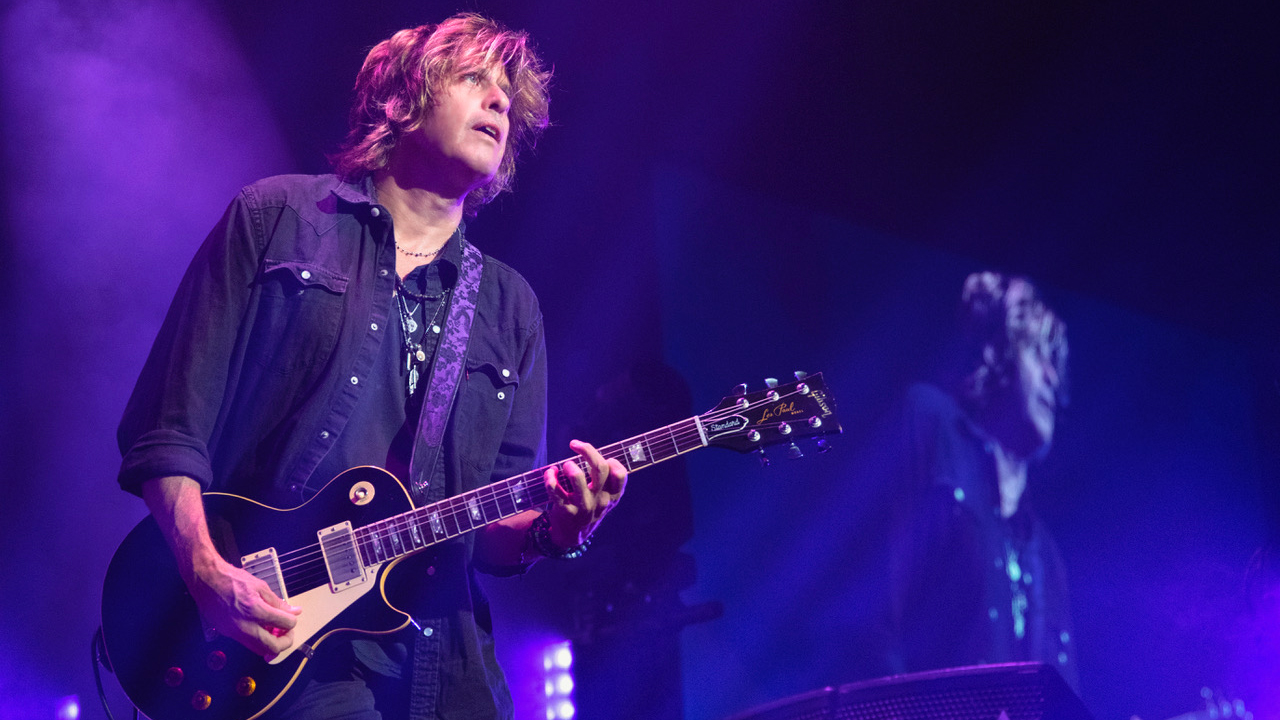
From Dean DeLeo’s legendary recordings in Stone Temple Pilots to his more recent Trip The Witch collaboration with Tom Bukovac, there’s a consistency with the quality of his guitar tones and the passion and conviction in his parts.
Alongside Cobain, Cantrell, Cornell, Thayil, Gossard and McCready, he’s one of the bona fide architects of the ’90s alternative rock sound – co-creator of a cultural phenomenon that still inspires people all these years later.
DeLeo’s latest venture, One More Satellite, started out as a solo project and ended up becoming a partnership with English singer Pete Shoulder, best known for his work in The Union, Winterville and Sloper.
The 10 tracks on their self-titled debut album make for an electrifying listen, ricocheting between uplifting earworm melodies and moody angst with an abundance of psychedelia and countrified blues thrown in for good measure.
And, as we’ve grown to expect, the guitar sounds are all-encompassing and multi-dimensional, teetering on the edge of breakup with an unbelievable potency and clarity. “It started out as an instrumental thing, riding the coattails of the Trip the Witch record,” DeLeo explains.
“Pete Shoulder sang on one song, then another, and wound up singing on eight of the 10. To have him on board was great. The record is very much our project, band – whatever you’d like to call it.”
This isn’t the first time Shoulder and someone with the DeLeo surname have crossed paths. The singer co-wrote the song Love Is Not Made of Gold from Robert DeLeo’s 2022 album Lessons Learned and sang on its opening track Big Sky Woman. So how did the siblings end up working with an underground musician on the other side of the Atlantic?
All the latest guitar news, interviews, lessons, reviews, deals and more, direct to your inbox!
“Ross Halfin introduced me and my brother to Pete back in 2015,” says DeLeo. “The three of us ended up doing some recording in 2017 that one day I hope you’ll hear. We’re sitting on an entire record. He’s a great friend and immense talent.”
Paper Over the Cracks has this riff where chords are bent as open strings ring out, as well as bluesy leads in E minor.
“I stumble upon things. I’ll pick up a guitar, find something and build off it – but I don’t really set out to write a song. With the blues stuff, maybe I’m showing my limitations rather than showing off.
“It’s more about what happens when I’m about to solo on a song like that. I want to have a melody in place rather than blow out guitar licks. Every solo needs a beginning, middle and end; I try to stay conscious of that.”
The blueprint with STP was to bring really beautiful chords, sometimes even jazz shapes, into rock music. It was always about clarity
Vultures has a very unique flavor in terms of chord voicings and movements.
“The verses start on an E, so I guess it has a major 7 sound, but I’m leaving one of the notes out. It’s the same shape through the whole verse. I couldn’t begin to explain what’s happening in the pre-chorus! There’s also a Tele on the left at points, doing this arpeggiated thing.”
The chimey tones are spectacular. In the past you’ve told us about the fundamentals of your rig – a VHT running in stereo with a Vox in the middle bringing extra midrange. Is that what we’re hearing?
“I’m no longer using the VHT. Steve Fryette, who invented it, has built me a whole new rig that I’ve been using over the last few years. The VHT took up about eight rack spaces and weighs around 100 pounds.
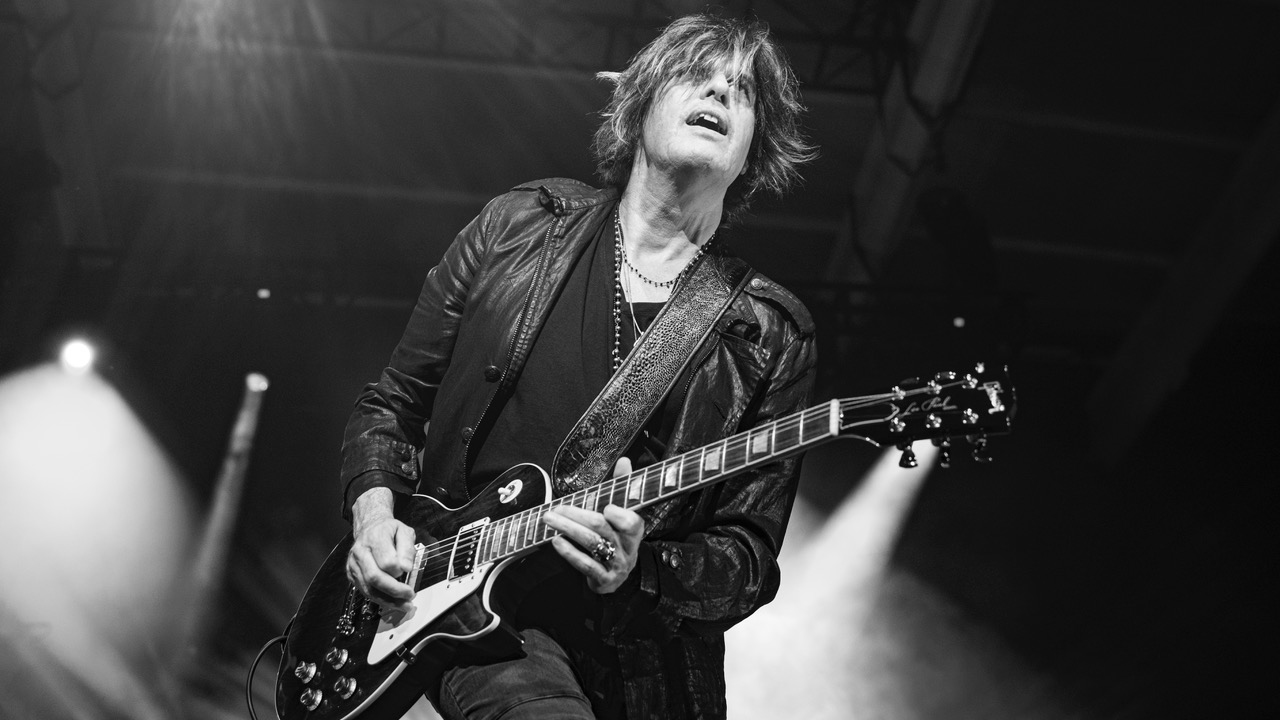
“Because we’re doing so many fly dates with STP, he built me a smaller amp that I run at 50 watts. It’s a beautiful thing that emulates the VHT perfectly, because the same guy made both. I’m also using one of Steve’s modules to replace the Demeter preamp.”
Is everything else the same?
“Yeah. There are two Marshall cabs running at 50 watts plus the Vox in the middle, which is set clean to get clarity and chime. Our front-of-house guy has been mixing us for nearly 40 years; he knows if too much Vox comes in – stopping me from getting the sound some of the songs call for.”
Perhaps it’s even more important to get a fuller sound like that when you’re the only guitarist in the band?
“That’s kinda been the blueprint with STP. Robert’s knowledge of voicings is way beyond mine. We wanted to bring in really beautiful chords, sometimes even jazz shapes, into rock music. It was always about clarity. Sure, I love volume, distortion and all that, but I also want to hear every string within a chord, instead of a jumbled mess.”
What instruments did you use most?
“Robert and I love using toy guitars that you have to wrestle with. They can have a specific sound. Sometimes with nice guitars you don’t get that. You’ll pick one up and realize it almost sounds too good.
“There’s something to be said for guitars that are challenging to play. Things like that can add to the performance, because you are pulling from the instrument.
“On Paper Over the Cracks, the guitar on the right was this entry-level Kay. I’m good at knowing what gear will give me the sound I’m looking for. Before I address recording, I have a tonality in my head; I know what sonic adventure I want to go on. For the song Willow Mae, it was a 1950 Gibson J-50.”
So there were a lot of different guitars at your beck and call?
“For sure. What you mainly hear on Vultures is a ’60s double-cut Danelectro. That’s where I’m getting that chime from, along with a guitar made by Bill Nash. Another friend of mine, Bruce Nelson, has built me some beautiful guitars over the years. That’s what I’m using live right now.
The stuff Richie’s doing with Adrian Smith is seriously good. The guy sings incredible, too
“His guitars play beautifully no matter where I am on the neck. When you start overdubbing with older guitars, there can be a battle with tuning. We all know the G string is the naughtiest of all strings! With newer instruments like the Nash and Nelson guitars, everything’s perfect.”
There’s a lot of Telecaster on this record.
“There’s nothing that emulates the sound of a Tele. It’s because of how the string comes through the body and bends at a 90-degree angle. It’s a very special tone. When you pick up a Tele as opposed to a jazz box, you’ll play different. The guitar in your hands can dictate how you touch and play it.”
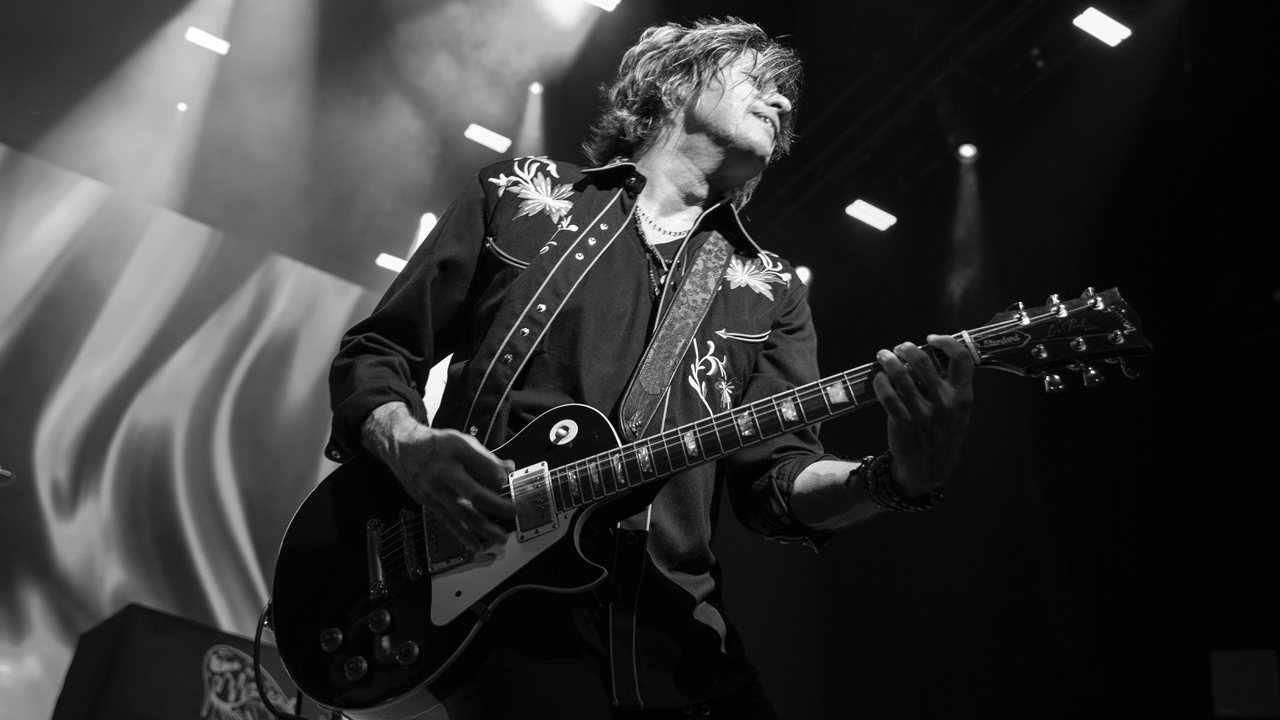
I own a couple, but my favorite is a Fender Richie Kotzen signature in Sea Foam Green.
“Have you seen what Richie has been up to recently? I saw him at a party recently. I had to ask him, ‘When did you get so great?!’ He’s always been amazing, but the way he’s playing right now is just unbelievable, man. That stuff he’s been doing with Adrian Smith from Iron Maiden is seriously good. The guy sings incredible, too. He’s a double threat!”
You’ve spoken about your love for the Boss CE-1 in the past. Which pedals helped on this album?
“It was mainly Small Stones and Leslie emulators. Bruce Nelson put this thing on his guitars where, if I back off the tone knob, it almost acts like a wah-wah. You can hear it in the solo at the end of Serenade. It’s that cocked sound. I don’t know if it’s some kind of attenuator, but I can get that without needing a pedal.”
You don’t tend to play much slide, but the Can of Worms solo came out great.
“I wear it on my middle finger. It’s just what felt comfortable, though I haven’t seen too many cats do that. Wearing a slide on your pinky looks so foreign to me. Have you seen this guy called Dylan Adams? He can play some slide, man.”
You’ve written many STP classics, from Sex Type Thing to Vasoline. Which song are you most proud of?
“I don’t know. Maybe the best song I’ve ever written is the one I haven’t written yet. I’m a big fan of Failure – I remember the first time I heard their track Mulholland Drive. I called Ken Andrews and told him it’s a song I wish I’d written; it impacted me so deeply.
“I feel that way about a lot of stuff Robert writes. My brother has had a huge impact on me. I played bass on this record and I told everyone I was doing my best Robert DeLeo!
“One of my favorite STP songs is I Got You from the No. 4 album, which was written by Robert and Scott Weiland. Honestly, I’d say my favorite STP songs are the ones I didn’t write!”
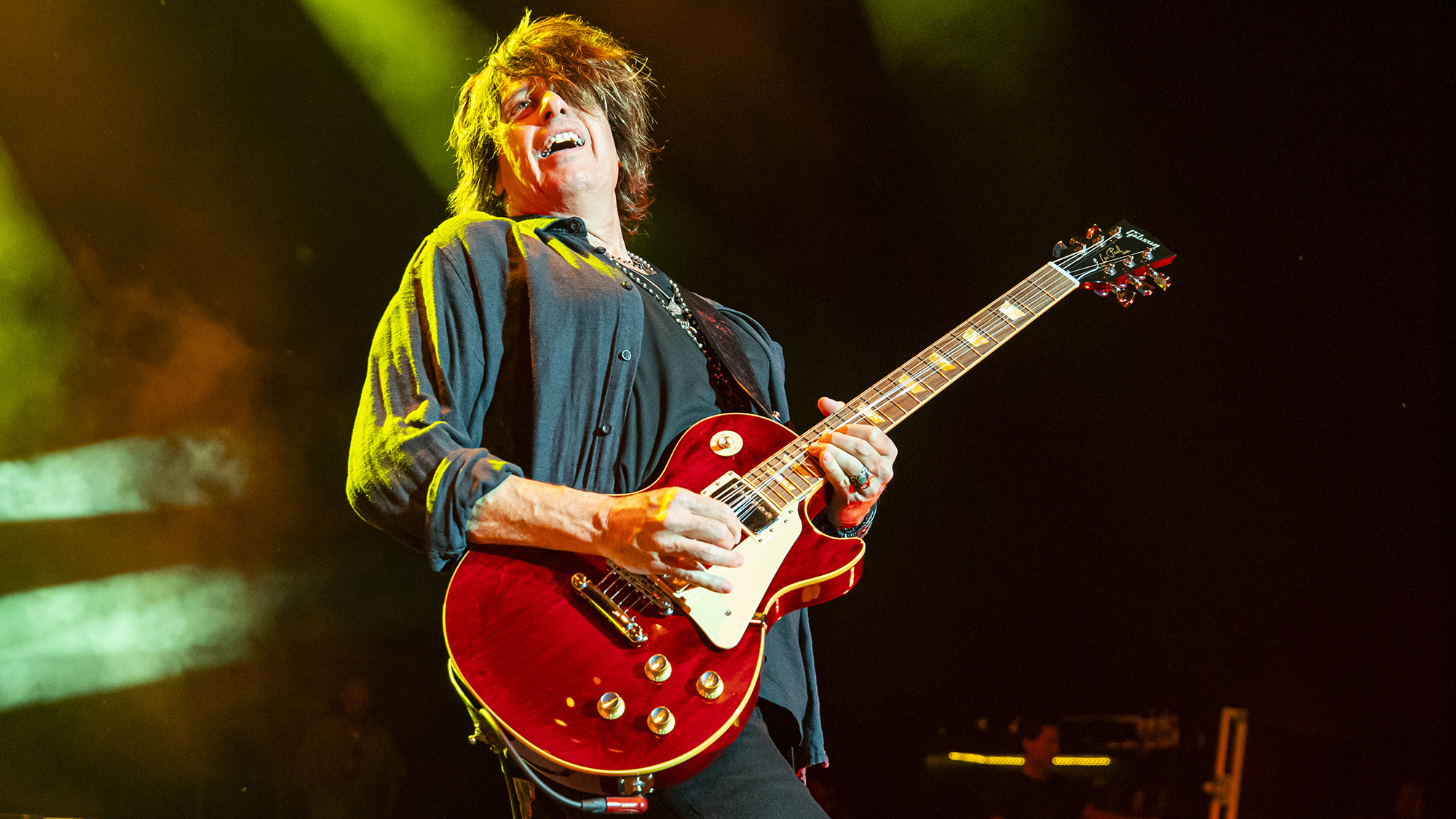
You paid tribute to Allan Holdsworth in 1992 on your Sin solo. Not many alternative rock bands would have dared doing that.
“Robert and I caught him on the IOU tour with Paul Williams singing, plus Jeff Berlin and Chad Wackerman. We were at The Fast Lane in Astbury Park. There were 15 people there.
“I can’t believe we did this, but I’m going to come clean – they weren’t off stage for more than two minutes and we barged into their dressing rooms with no etiquette whatsoever. Robert still has the plectrum he asked Allan for!”
You got to know Allan in the years that came after.
“We became friends in the early ’90s. There was a gentleman called John Pegler who had this guitar shop in San Diego. John knew Allan and he was the common thread for our friendship.
“One night I was hanging out at Allan’s house with [pianist] Gordon Beck. Allan made a lovely meal and we had a couple of drinks or 10. Gordon started poking at Allan, telling me, ‘All he wanted was to become a sax player!’ But if you listen to the phrasing and tonality on Allan’s records, it definitely comes from the saxophone.
“There hasn’t been anyone like him – and believe me, I’ve pursued Allan’s career from top to bottom, starting with the 'Igginbottom stuff, then what he did with Bruford and UK to the music he made as a solo artist and with Jean-Luc Ponty.
“Nobody has ever been able to play the way he did. A lot of it comes from the sax phrasing he brought into the realm of electric guitar. It’s mind-blowing!”
- One More Satellite’s self-titled debut is out on July 18 and available to preorder now.
Amit has been writing for titles like Total Guitar, MusicRadar and Guitar World for over a decade and counts Richie Kotzen, Guthrie Govan and Jeff Beck among his primary influences as a guitar player. He's worked for magazines like Kerrang!, Metal Hammer, Classic Rock, Prog, Record Collector, Planet Rock, Rhythm and Bass Player, as well as newspapers like Metro and The Independent, interviewing everyone from Ozzy Osbourne and Lemmy to Slash and Jimmy Page, and once even traded solos with a member of Slayer on a track released internationally. As a session guitarist, he's played alongside members of Judas Priest and Uriah Heep in London ensemble Metalworks, as well as handled lead guitars for legends like Glen Matlock (Sex Pistols, The Faces) and Stu Hamm (Steve Vai, Joe Satriani, G3).
You must confirm your public display name before commenting
Please logout and then login again, you will then be prompted to enter your display name.





